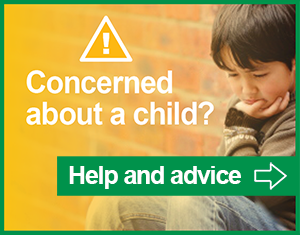Safety Planning
Having a safety plan means you are prepared in an emergency and that if you have children they are prepared too. The violence or abuse is not your responsibility or your fault, but there are a number of things you can do which will reduce the risk of harm to you and which will keep your options open.
Remember, there are people in your community who will help you keep safe if you let them know what is happening.
Confide in someone you can trust. If that is a neighbour ask them to call the police on 999 if they ever hear a disturbance from the house.
Try to save some money each week, if possible.
Leave money, an extra set of keys, copies of important documents (birth certificates, marriage certificate, driving licence, national insurance number, benefit books, bank books, credit cards) in a safe place. This could be with a close friend or family member.
Think about where you could go if you have to leave in a hurry.
If you have children explain to them that you might need to leave quickly. If you can remain calm while talking to them this will help them stay calm, if you do have to leave. Reassure the children that it is not their job to keep you safe.
Make sure the children know how to dial 999.
Arrange a code word or sign that will tell a friend or family member to ring the police on 999.
Keep important numbers such as the 24hr Women’s Aid number to hand – 0808 2000 247.
What other numbers are important to you?
If you can, have spare clothing in a bag where you can pick it up quickly – either at home or left with someone you trust.
Keep any evidence of the abuse, such as texts, emails, letters or photos of injuries or damage to property, if you do not feel able to go to the police.
Consider talking with your GP about the abuse.
Trust your judgment and instinct. Leave before an incident gets worse if you fear for your own and or your children’s safety.
If you are in a house try to stay in a room with access to an exit door preferably not a bathroom or kitchen and not locked in a room.
Call 999 or use your signal or code word for a friend or member of your family to call the police.
Don’t move towards your children – they could get hurt as well.
Leave as soon as it is safe to.
Keep a record of what has happened; you can write notes in a diary or tell someone what has happened and get them to write it down. Keep this in a safe place, where it won’t be found.
Take photographs of any injuries to yourself and any damage to your home and belongings.
Consider installing exterior lighting.
Seek legal advice on a non-molestation order. Make copies and keep them in various places.
Keep a record of any breaches of the order and ask the police to take action.
If you feel able, ask your employer to screen your calls.
Change your work hours and route to work.
Give the children’s school and other carers a list of named people who can collect the children.
Change your number.
Become ex-directory.
Bar anonymous calls.
Use 141 before dialing and your number will be withheld.
Use BT call barring for specific numbers.
Unplug the phone at night.
Do not return abusive texts but keep them on your phone to show to the police.
Make friends, relatives, neighbours and colleagues at work and teachers at your children’s school (if applicable) aware of your situation so they are better able to help if needed in an emergency.
Try to use well-lit routes where there are plenty of people.
Keep a detailed record of any abuse including photographs, emails etc with dates and times.
If you have a non-molestation order which is being broken, call the police to have them take action
Check the security of your home.
Make sure you have a smoke alarm fitted and check the battery regularly, the Fire Service can assist you with this.
